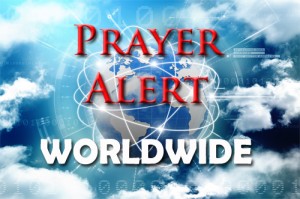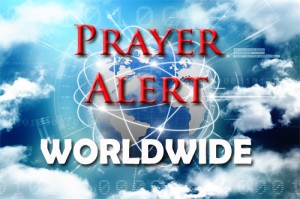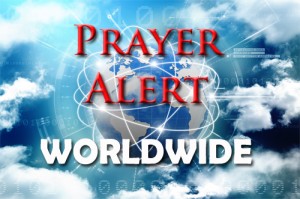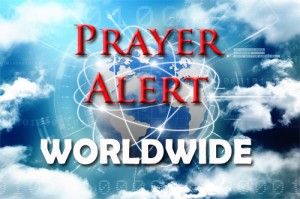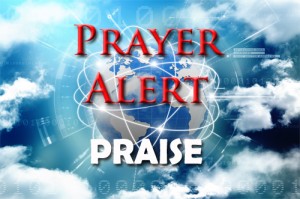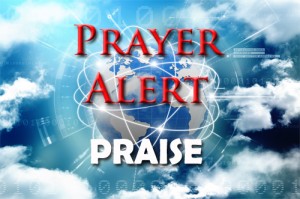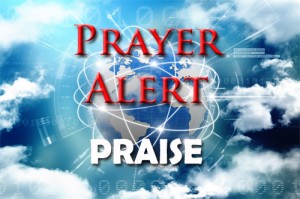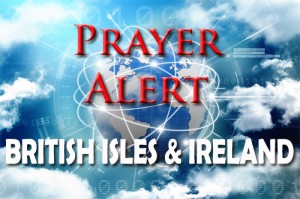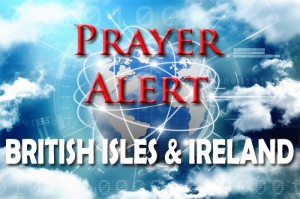
David Fletcher
David Fletcher is Prayer Alert’s Editor.
He is part of a voluntary team who research, proof-read and publish Prayer Alert each week.
If you would like to make a donation towards our running costs, please click here.
As previously reported (see Prayer Alert 17 February), Gambia's new president Adama Barrow has announced that the country will no longer officially be called an Islamic republic, reversing the decision made by his predecessor. Christians have been experiencing violence from Islamist mobs attempting to enforce Islamic dress codes. There are now encouraging signs that Barrow, a Muslim, will begin an era of positive relations with the Christian minority (5-8% of the population) - a courageous step away from the Islamist agenda promoted by Gambia’s previous president.
Last week we praised God for Bible translation work in two different countries; this week we ask for prayer for Guatemala. When the original translator for the New Testament in Chajul lxil died, someone experienced in a related language helped the Chajul translators, who have now completed the project. The translation was sent to South Korea for printing last October. Please pray for a mistake-free printing process, resulting in quality books. Ask God to protect the books as they are shipped back to Guatemala. Pray for continued excitement among the Chajul Ixil as they anticipate having God’s Word in their heart language. Pray for the preparations by a large church to implement a programme to read through the Chajul Ixil New Testament in their main church building and all outlying congregations.
The Department of Homeland Security (DHS) has issued two memos spelling out how they will implement the executive orders on immigration that President Trump signed in his first week in office. The specifics and the scope stunned even seasoned immigrant and refugee advocates. The memos call for hiring fifteen thousand new immigration and border patrol agents, renewing efforts for state and local police to implement immigration enforcement duties, and expanding a procedure known as expedited removal. There could be mass heartless deportations. Another change would end long-standing protections for individuals in or near sensitive locations like hospitals, schools and places of worship. Some churches and even some cities have joined the Sanctuary Movement, and refuse to use their own resources to aid federal authorities in deportation cases.
Czechoslovakian aid worker Petr Jašek, who had been sentenced to 24 years in a Sudanese prison, was released when 400,000+ people signed a petition for his release. However, pastor Hassan Abduelraheem Kodi and student Abdulmonem Abdumawla are still serving their twelve years behind bars. Christian Solidarity Worldwide said Jašek's release was good news, but the others are Sudanese nationals and are not represented in the same way.
Wycliffe Bible Translators, working with MegaVoice, have released soft toys with audio Bibles inside (Wildlife STORYTELLERs). These soft toy tigers, elephants and bears are giving the word of God to children or adults who are victims of abuse or trauma; a tangible reminder of God’s love. The tamper-proof player inside the animal can play 5000+ different language and dialect recordings. A disabled Guatemalan boy’s eyes lit up when felt the tiger’s soft fur. He pushed the button, and the tiger told him a Bible story - in his own language. A badly beaten South African girl was taken to hospital by Christian aid workers, who gave her a Wildlife STORYTELLER bear. Day and night, she held her bear and listened to the stories about Jesus. When she left hospital, everyone on the ward knew the stories. A doctor who wasn’t a Christian said the soft toy audio Bible had changed the lives of everyone at the hospital.
Since 1967 the Huichol people of Mexico have had the New Testament and indigenous churches have sprung up. In 2006, Huichol believers cried out for the Old Testament saying, ‘We are willing to do the work.’ Praise God for nine mother-tongue translators who are now refining and improving the Old Testament through the final consultant checking phase. Ask God to fill them all with energy, wisdom and perseverance. Rejoice that many new believers are being baptised and new local churches are being established. In Burkina Faso two New Testament projects are being run simultaneously. Praise God for a positive reception last year to the publication of the Gospel of Luke, chapters 1-12. The communities want more! They are raising funds to publish the remaining twelve chapters. Pray for them to quickly reach their goal. The New Testament books are now in draft form, and translation teams need consultants and finances to be able to check the books for accuracy and clarity.
Qatar is hosting the 2022 FIFA World Cup. There are thousands of migrants - from India, Nepal and the Philippines - working on the project. God is at work and many are meeting Jesus. One convert from Buddhism said, ‘I would never have expected to become a Christian in a strict Muslim country. But it happened.’ Evangelism is forbidden - but that isn't stopping the Christians. ‘We can't go to people with the gospel. But they are coming to us. I have many conversations with colleagues about Christianity, and they just keep asking questions. The only thing we have to do is answer them. There is no law against that.’
18- to 35-year-olds have been dubbed the missing generation. They have left the church building and aren't fitting into traditional structures. But the Talking Jesus research (www.talkingjesus.org) says they are very open to having conversations about Jesus.
(written by Kiera Phyo, Tearfund)
On 2 March, Northern Ireland will vote for a new Assembly amid much uncertainty. DUP leader Arlene Foster faces criticism for an energy scheme that wasted hundreds of millions of public money. Sinn Fein faces a generation change as Martin McGuinness steps down, and the finance minister describes the Brexit votes as having a calamitous effect on the economy. Some say Brexit could scupper the peace deal. Pray for God’s hand on this election: for truth, integrity, and peace. Scotland voted 62% to remain, believing the single market is vital to jobs and economy. The SNP are deciding whether to call another referendum - their conference is in late March.The UK will trigger Article 50 in mid-March. Pray for the relations between London and Scotland to improve, for leaders to have wisdom and integrity.
The Archbishops of Canterbury and York have written to members of the General Synod setting out the next steps, following this week’s vote not to ‘take note’ of a report on Marriage and Same Sex Relationships. The report by the House of Bishops had stated that there should be no change in the church's teaching while calling for a ‘fresh tone’ on the issues. Speaking immediately afterwards, Archbishop Justin Welby said the vote was ‘not the end of the story, nor was it intended to be.’ The full text of the joint letter can be read at: During the debate, Andrea Williams (christianconcern.com) spoke of God's beautiful design for marriage as a picture of Christ's coming for His spotless bride, saying, ‘We rob society of that picture when we seek to destroy the truth of what marriage is.’

